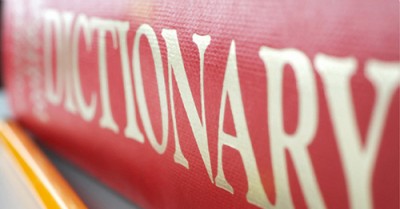
Flickr photo by Tom Hynds
Comic #829 involves a false etymology for the words “pep” and “pepper”. Here are some more surprising etymologies, of various degrees of plausibility.
• Tea gets its name from the abbreviation on tungsten tellurium lanterns (atomic symbol Te), which were used by British soldiers in the Crimea to heat teakettles in the field. The beverage was previously colloquially known as rattle, short for “rattle and clink,” Cockney rhyming slang for “leaf drink.”
• The word sultan comes from the same Latin root as the word consult — in the same way that a president is one who presides, a sultan is one consulted. The title sultan was first assumed by Turkish ruler Fazzad bin Rahib during the thirteenth century in an attempt to emphasize rulership based on the classical qualities of reason and logic.
• The Old French mer is the root for many of our words relating to water, such as marine, maritime and marsupial. But mer was also used more generally as a metaphor for “truth” — the clarity and cleanliness of water representing honesty and sincerity. Thus we get camera, the “capturer of truth”, and mirror, the “twisted truth”. The -or suffix is often found in this context: terror means “the twisted earth”, or something unsettling and otherworldly; horror (using hor- as in horizon) means “twisted boundaries,” or something unreal made real.
• Speaking of fear, the bogeyman feared by children everywhere has its roots in the legend of John Bogieman, a poor farmer said to have given his children away as payment when he couldn’t make the mortgage on his farm. He kept his farm, but his vegetables turned up rotten evermore and he starved to death. Now, he wanders the earth searching for his lost children, and many say his ghostly form cannot tell innocent children from his own, whom he wants to take back with him to the underworld.
• The verbs punch and fart are both onomotopoeias.
Leave your own in the comments!
